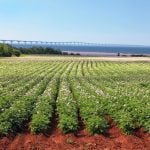We welcome readers’comments on issues that have been covered in the Manitoba Co-operator. In most cases we cannot accept “open” letters or copies of letters which have been sent to several publications. Letters are subject to editing for length or taste. We suggest a maximum of about 300 words. I am responding to Brian Sterling’s



